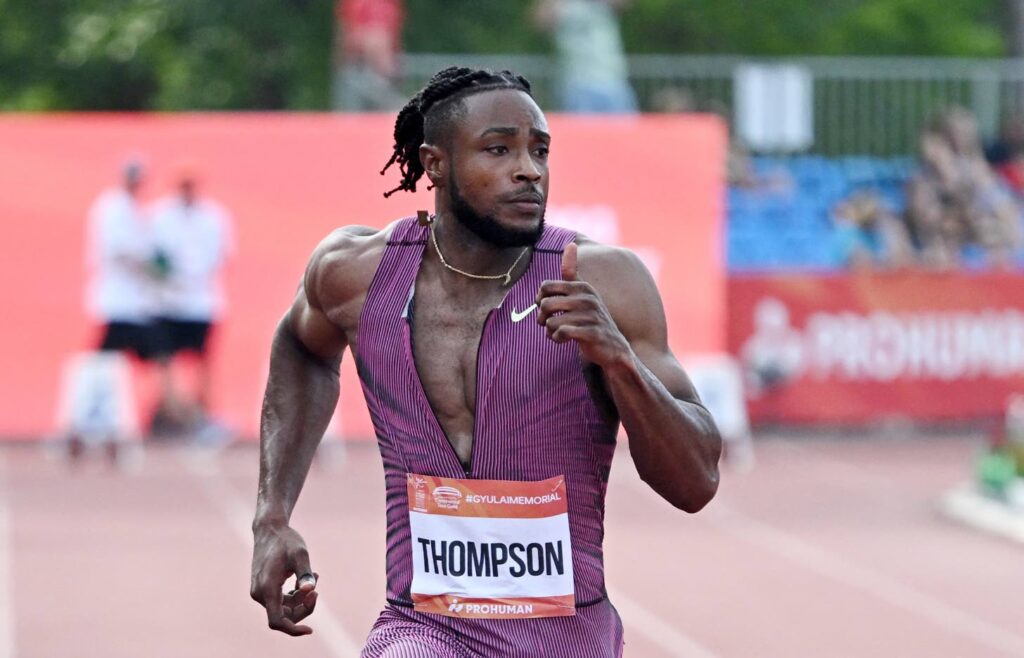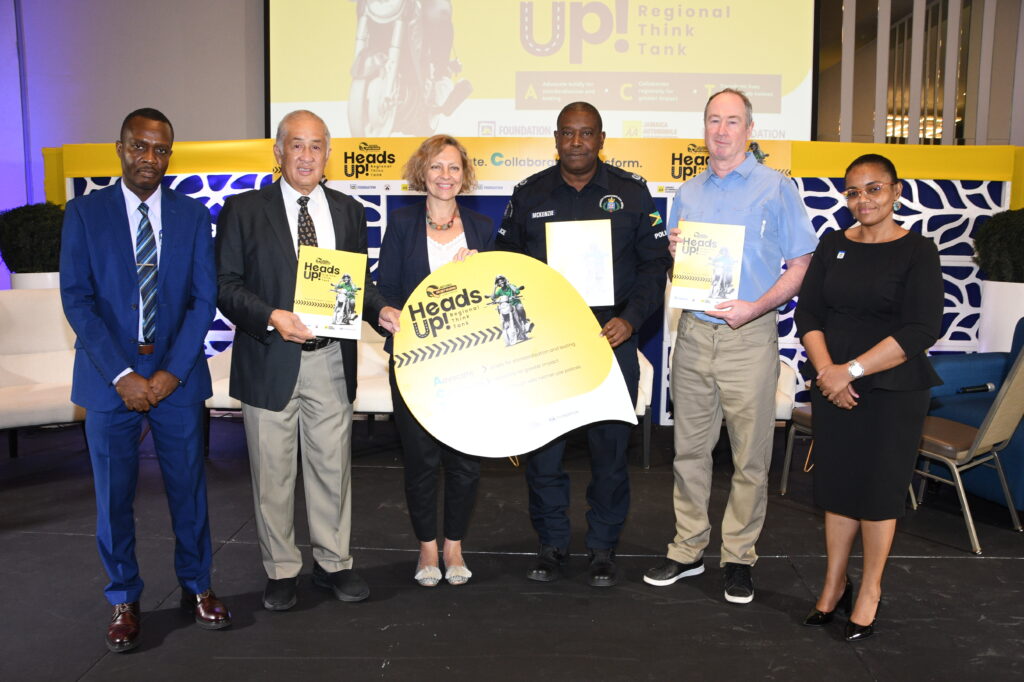From left: Delroy Simpson, chief technical director in the Ministry of National Security; Parris Lyew-Ayee, chairman of the JN Foundation; Agnieszka Krasnolucka, programme director of the FIA Foundation; Dr Gary McKenzie, assistant commissioner of police; Dave Cliff, chief executive officer of the Global Road Safety Partnership and Claudine Allen, general manager of the JN Foundation take a group photo after signing the agreement.
KINGSTON, Jamaica- The Jamaica Constabulary Force (JCF), JN Foundation, Global Road Safety Partnership (GRSP) and the FIA Foundation have signed an agreement to support a national programme aimed at bolstering the JCF’s capacity to improve motorcycle safety through improved enforcement of motorcycle helmet laws in Jamaica.
The agreement was signed at the ‘Heads-Up!’ Regional Think Tank held recently at the AC Hotel in New Kingston.
The forum was hosted by the National Helmet Wearing Coalition, a project of the JN Foundation in partnership with the National Road Safety Council, with funding from the FIA Foundation.
The two-year training programme represents a significant step in addressing the alarming rates of motorcycle-related injuries and fatalities.
The programme aims to achieve key behavioural outcomes, including an increase in the number of motorcycle riders and their passengers (pillions) who consistently and correctly wear standard-approved helmets, and the reduction of motorcycle-related deaths and serious injuries resulting from the non-use of helmets.
The collaboration will see an investment in training, tools, and leadership development for law enforcement officers to support more effective road policing operations and foster behaviour change among riders.
Assistant Commissioner of Police, Dr Gary McKenzie, who signed the agreement on behalf of the JCF, welcomed the partnership and highlighted the urgency of the initiative citing findings from crash investigations that underscore the critical need for improved helmet compliance and enforcement.
“When we look at what we have gathered, over 75 per cent of those who died suffered serious head injuries. That tells us their heads weren’t protected,” he said.
“We must ensure everyone-riders, passengers, families, and communities understands the importance of helmets. Helmets save lives. Wearing one significantly reduces the risk of head injury and death. We have to protect our most valuable asset, our brain.”
Parris Lyew-Ayee, chairman of the JN Foundation, described the signing as a moment of national and regional significance.
“Today’s signing of this two-year treaty agreement is much more than a procedural step. It is a powerful statement, one that says we are united in our commitment to protecting lives, strengthening communities, and building a safer Jamaica. We believe that this partnership will further empower the JCF to be a ‘force for good’, promoting motorcycle safety and upholding standards that save lives.”
Dave Cliff, chief executive officer of the GRSP, welcomed the agreement as a model of meaningful collaboration. Headquartered in Switzerland, the GRSP is a non-profit organisation formed in 1999 in response to what is recognised as a global as a human-made health crisis arising from deaths and injuries due to road crashes. It is hosted by the International Federation of the Red Cross and Red Crescent Societies.
“We are proud to support this bold and necessary initiative. Enforcement, when paired with education and community engagement, is one of the most effective ways to change road user behaviour and reduce fatalities. This partnership sends a clear message that Jamaica is serious about addressing preventable road traffic injuries. We look forward to seeing the positive impact this initiative will have on communities across the country,” said Cliff.
Meanwhile, Delroy Simpson, chief technical director at the Ministry of National Security who represented Minister of National Security and deputy Prime Minister, Dr Horace Chang, said that although some progress has been made in enforcing helmet use, there is much more that needs to be accomplished. He also underscored the importance of public education to encourage helmet use.
“We recognise that enforcement alone cannot achieve our objectives. We must have strong enforcement and [public] education campaigns that foster a culture of safety. We must engage with our communities, particularly our young men, to change perceptions and encourage responsible riding,” he argued.
The signing partners pledged to act swiftly and in a coordinated manner to ensure the programme’s successful and sustainable implementation, leveraging communication, funding, legislative support, and stakeholder mobilisation.










